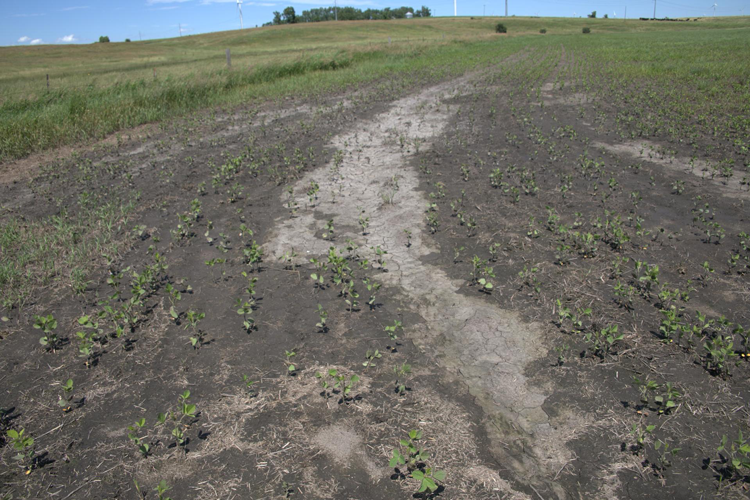Catastrophic flooding requires diverse crop systems to maintain forage production and rebuild soil integrity |
|
|
|
This item has been supplied by a forage marketer and has not been edited, verified or endorsed by Hay & Forage Grower.  Record-breaking rain and floods have devastated fields in areas of Iowa, South Dakota, Minnesota, and Nebraska. Up to 1 million acres of farmland were affected, and farmers and communities have started tackling the aftermath. With many acres completely drowned out and some not planted at all, determining what to do next can be intimidating this far into the growing season. Justin Fruechte, a Minnesota farmer and Product Expert with Renovo Seed, is experiencing these challenges first-hand. “The number one goal farmers and ranchers affected by the floods should think about right now is getting a living root growing on their soil. If you don’t plant something, weeds will grow instead and then you’ll be left with a perpetual weed bank. That’s the last thing you want,” shares Fruechte. Although it is later than most farmers are used to planting in the upper Midwest, there are many crop options with plenty of time still left in the planting window. Fruechte explains that whether you need to produce forage will determine what seed you put in the ground. “If you don’t have livestock and you’re not worried about producing forage, your next step can be as simple as seeding an economical small grain or brassica for quick growth to infiltrate water, hold your topsoil in place, and suppress weeds,” he explains. Renovo Seed’s Nutrient Builder cover crop mix was a best-seller in 2019 when heavy rains led to similar conditions and more than 19.4 million acres of prevent plant. “I’d always recommend something with lots of diversity to rebuild your soil for next year’s cash crop. Nutrient Builder has seven different species that will fix nitrogen, build organic matter, and get all that water flowing down into the soil profile. Personally, that’s what I’m putting on my waterlogged acres where forage isn’t a high priority,” Fruechte shares. On acres where forage is needed for livestock production, Renovo Seed’s Team Agronomist, Alex Guttormsson, advises that a forage sorghum or millet is your best option. If your ground was fertilized for corn production, your first choice should be forage sorghum. “Forage sorghum will be the most similar in terms of feed value to corn, and replicable to that in the diet. The nitrogen requirements for forage sorghum are about 80% that of corn’s, so you don’t have to be worried about nitrates accumulating in the crop,” shares Guttormsson. Guttormsson explains that millet is the best option for a hay crop in the mid-summer months. “The best option to produce hay on wet, low, mucky areas is Japanese Millet. It resembles a barnyard grass seed head, but it can reach heights of three to four feet. The yield is phenomenal, and I’d say the quality is average.” German or White Wonder millet will mature a few days quicker than Japanese Millet and are also good options to plant now for a summer hay crop. Ultimately, Fruechte and Guttormsson encourage farmers and ranchers to keep their soil covered and focus on rebuilding nutrients to set up next year’s primary crop for success.  To learn more about Renovo Seed’s options for waterlogged acres, call 605.627.1901 or visit www.renovoseed.com. About Renovo Seed Renovo Seed is a visionary in the seed industry, focusing on positive land use solutions. Backed by Millborn’s powerful supply chain, Renovo Seed works to improve the resiliency of the land for generations to come with a robust seed lineup and unmatched team of experts who design practical, tailored solutions for farmers, ranchers, and landowners. For more information, visit RenovoSeed.com. About Millborn With high-quality seed products, a unique, vertically integrated supply chain, and a team of experts who understand the industry, Millborn is the single source for agriculture, conservation, reclamation, and commercial seed needs. For more information, visit MillbornSeeds.com. |
